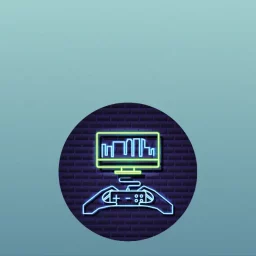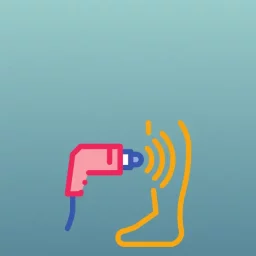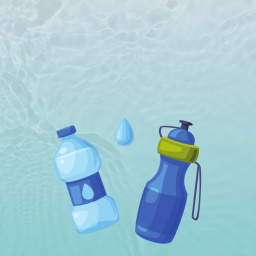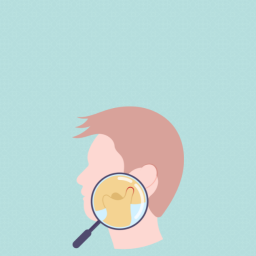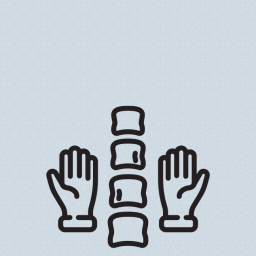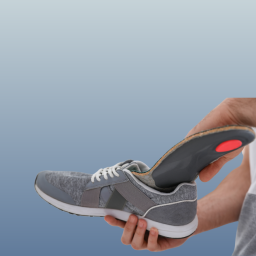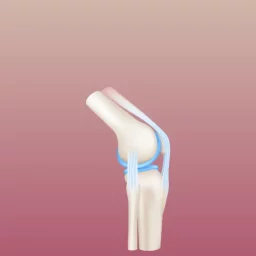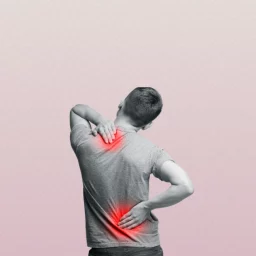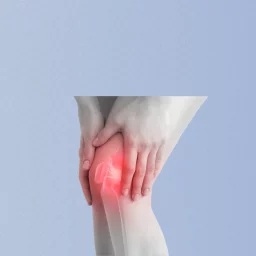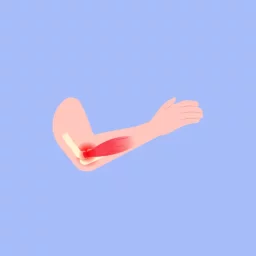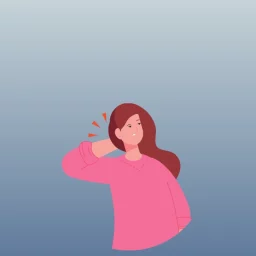TMJ Pain
Do you wake up in the morning with jaw pain or a headache? Do you feel stiffness or tension in the face and neck? Some people wake feeling like they have been clenching their teeth all night. Others can hear clicking and popping from their jaw when they chew or open their mouths. The temporomandibular (TMJ) joints are the joints located on either side of your head, just in front of your ears. These joints are the connection between your mandible (jawbone) and your temporal bone (skull). The TMJ is a sliding hinge joint that can rotate and move forward, backward and side-to-side.
The TMJ is a small and complicated joint, containing a disc surrounded by a capsule. The disc stabilizes the joint and surrounding muscles and ligaments keep the joint in place and aid in its motion. This joint allows complex movements required for frequent motions like chewing, swallowing, talking, and yawning.
What is TMD?
Dysfunction of the TMJ is referred to as temporomandibular joint disorder (TMD). TMD can cause pain, headaches, and tinnitus (ringing in the ears), and have a serious impact on your daily life. TMD is usually caused by a combination of factors, including jaw trauma, injury to the head or neck, stress, poor posture, and arthritis. The TMJ is so closely related to our neck that indirect trauma to the neck (like whiplash or a fall), and yes even poor posture, can also cause TMD.
TMD can cause pain and tenderness around the ear, the jaw, the face or the temples. Some people experience neck pain and headaches associated with TMD. Other symptoms include difficulty opening/closing the mouth or locking the jaw. Furthermore, TMD sufferers may hear and feel clicking, popping or grinding sounds when they chew, yawn or open their mouths.
Our MSK system is a complex biomechanical chain and several other structures influence the function of the TMJ. With TMD, the muscles of the jaw become too tight or out of balance causing poor mechanics, which can lead to pain and dysfunction. This dysfunction usually stems from dental issues or MSK problems like poor posture and/or trauma.
For a large portion of TMD sufferers, pain and clicking in the jaw are affected and influenced by the position of the head, neck, and upper body. Muscle tension and clicking in the TMJ means likely dysfunction in your neck, shoulders, upper back and possibly your lower back. Chronic neck and thoracic misalignments, like those seen with poor posture, may feed a TMJ problem.
Neck Pain
Neck pain is a significant burden within our society. It has been reported that the prevalence of neck pain is almost as high as that of low back pain, with some studies noting that 3 out of 4 people suffer from neck pain in one year. The nature of school, office work and the long hours spent working at a computer put significant stress on the neck daily.
The jaw is an integral component of the postural system. Additionally, the body functions at its best when all of the joints, bones, and muscles are properly aligned and when there is little to no tension in the nervous system. Consequently, you likely have less than ideal posture if you spend your day slouching in your office.
Neck pain and forward head posture are usually preceded by rounded shoulders and stiffness and tension in the upper back (thoracic spine). This hunched posture puts a lot of strain on the head and neck. When the upper back rounds over as your head and shoulders translate forward, the normal curvature in your neck is lost. The head is pulled forward and neck muscles get tight, including muscles surrounding the jaw and side of the face. This increased strain on your neck and head can put the jaw at a mechanical disadvantage, which in turn can lead to TMJ problems and headaches. Poor posture is one of the leading causes of TMD. The good news is that a workstation adjustment, frequent breaks, appropriate exercises, stretches, and regular chiropractic care can improve your posture and alleviate your TMD.
Your Chiropractor Can Help
Your chiropractor will first assess the cause and source of your jaw pain with a comprehensive history and examination. Did an injury occur? Are you stressed, are you clenching your teeth? Is there degeneration in the joint? A complete evaluation of your posture, jaw movements, spine and MSK system will be performed. This will provide your chiropractor with important information. The TMJ is a complex joint affected by many surrounding tissues. Most TMJ conditions respond well to conservative chiropractic care. Further, advice and recommendations regarding neck postural changes may be addressed.
If you are experiencing TMD, talk to your dentist and your chiropractor. At CURAVITA, our team of chiropractors, physiotherapists, and registered massage therapists operate under a collaborative care model. We provide customized, natural care that takes into account the unique needs of each individual. Dedicated to MSK health and wellness, we are committed to providing our clients with the highest quality holistic care and personalized experience.
If you think you have TMD and are not sure where to start, call the CURAVITA Health Group today to book an assessment. Our model of patient-centred care in a collaborative multi-disciplinary environment will ensure you get the right care, at the right time and in the right place. Contact us at our CURAVITA Glebe Clinic at 613-237-9000 or our CURAVITA Byward Clinic at 613-860-8600.


